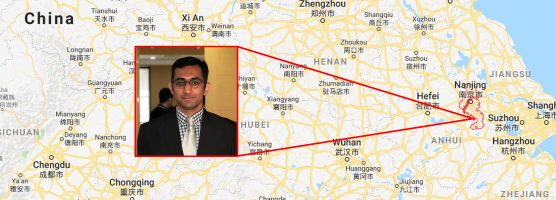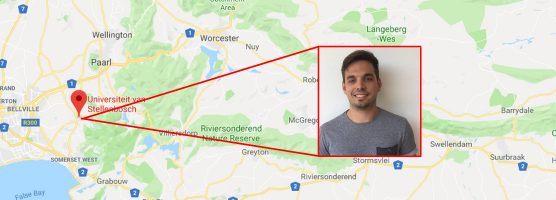Posted August 12th, 2019
New correspondent: Jeffery Nosakhare Omorodion from Turku, Finland
Today our team was strengthened by a student from Åbo Akademi University in Turku, the only exclusively Swedish language university in Finland: Jeffery Nosakhare Omorodion. Jeffery is a master degree student in the department of chemical engineering. He’s inspired to develop innovative solutions to the environmental problems plaguing mankind. Born in Nigeria, he sees rising sea levels causing massive flooding in the coastal parts of his homeland. Jeffery will assist us to unroll Cool Down The Planet and is very motivated to help us find suitable subjects to be featured in his country. We first asked him to answer some questions.
Jeffery, can you introduce yourself?
My name is Jeffery Nosakhare Omorodion. I am a master degree student in the department of chemical engineering Abo Akademi with my major in process and system engineering and minor industrial management. During my leisure time, I enjoy photography, playing the recorder, travelling, watching football matches and documentary.
What motivated you to choose for the study that you’re doing?
I realised that numerical aptitude and logic were more appealing to me as compared to verbal aptitude. I had always been enthused at transformation process involving raw material to finish goods throughout my high school days. During the course of my undergraduate studies, I became increasingly interested in optimization and issue regarding the environment. My bachelor thesis looked at the way to optimize the adsorption of heavy metal pollutant from industrial wastewater using locally available adsorbent.
What are your ambitions? How would you like to develop your future career?
I would love to be a researcher, reason why I would pursue doctoral studies at the completion of my master degree program. This would enable me develop innovative solutions to the environmental problem plaguing mankind using tools from my skills set developed during my studies and those that I will acquire in the future.
Do you see any consequences from climate change in your region? If yes, can you give an example?
There is increased desertification in the northern part of Nigeria with part of Lake Chad drying up which has led to increased competition for scarce resource. Hence, continuous bloodshed between farmers and nomadic cattle herders that have claimed thousands of lives in my home country. The rising sea levels had caused massive flooding in various coastal part of Nigeria especially Lagos where I once lived.
What do you consider is a strong quality of the Cool Down The Planet formula?
The ability for the formula to build international collaboration that would cross ethnic, religious, professional and cultural borders in other to solve imminent environmental challenges.

